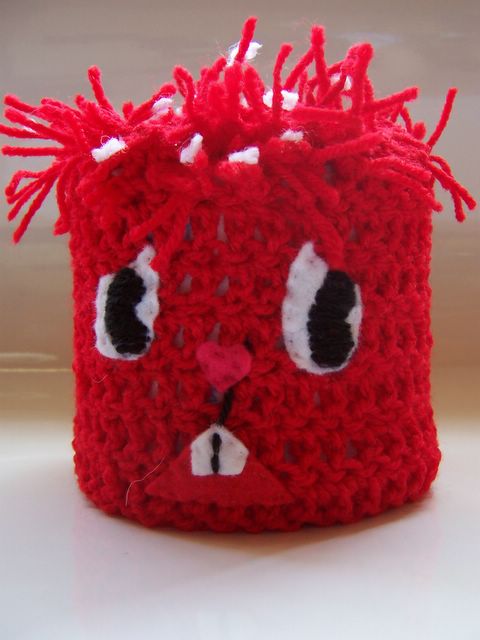I'm bringing up a non-craft issue today, which is work related for me, but may affect some of you guys. If it does, don't take it personally, but it is a bit of an issue that's got me riled up at the moment and I figured since it was getting close to Christmas, it's probably something worth thinking about.
Overweight pets. They're a common site in vet clinics, ranging from the podgy to the massively obese. I've seen a number of animals, both cats and dogs, recently which have been double their desired weight. It is a joy to see a labrador of normal weight, and rare to see underweight animals (normally due to a health problem, rather than malnutrition).
Obesity in pets can lead to a number of health problems, many similar to humans. As well as the visible fat under the skin, fat surrounds internal organs and obesity can lead to diabetes, liver disease, cancer, heart and respiratory problems, and joint disease. Excess weight can lead to worsening of some diseases such as arthritis. Individual fatty meals can lead to pancreatitis, which not only makes pets extremely sick, but can be fatal.
Surgery and anaesthesia is more risky in overweight pets, as in position their lungs may not expand as much. Fat surrounds blood vessels, making them slippery and difficult to tie off. Suture material becomes greasy and slippery which can make knots less secure. This means surgery takes longer, which again is less than ideal for the patient.
So how do pets become overweight? There are a couple of medical reasons, but the most common causes are too much food and not enough exercise. Lack of exercise tends to be less than a problem in dogs (this is a wide generalisation and obviously doesn't apply to every case) than cats, who are obviously quite difficult to exercise. Indolent cats are also at an increased risk of urinary crystals.
Excessive calories is a more common reason for weight gain and often snacks and scraps are a big part of this. Many dogs in particular are very food responsive and food is a common reward when training. If you give your dog treats when it begs, you are rewarding this behaviour and training them to beg. Rewards given randomly are an excellent means of reinforcing behaviour for long term training as well.
The question is then, how do you get your pet to lose weight?
Increasing the amount of exercise can help, and activities such as a getting the cat to chase a torch beam around can help. If your pet is getting enough exercise, or for one reason or another they can't be exercised more, you have to concentrate on the diet. There are a number of restricted calorie diets available for obese pets. These have increased fibre and bulk to make them feel full, but don't have the calories. In less obese pets cutting down the food given, feeding a lower calorie dog food or substituting some of the meal with grated carrots can help. Pets should be fed for their desired weight and marking a cup rather than eyeballing the amount will help. Switching to a smaller food bowl can also make it look more full. Cutting out treats and scraps from the table is also key. One very important factor is communication. Everyone who feeds the pet needs to be involved in the weight loss plan so their is consistency in the diet and exercise.
Unfortunately, like in people, weight loss in animals is hard once they've put the weight on. One of my dogs was 42 kilograms and is now down to a healthy weight of 36 kilograms. This has involved persistence with diet and a lot of yelling at other family members. However he suffers from arthritis and so the little treats, while giving him a brief pleasure, are ultimately more harmful than helpful to him. At 11 years old it's far too late to stop him begging when food is around (he's been trained too well) but it's something we do our best to ignore now.
In the end our pets weight is our responsibility, and any preventative health care we can give them we deserve.
Subscribe to:
Post Comments (Atom)




2 comments:
You mean like this? http://shequilts.wordpress.com/2007/12/07/starving/
It has been an ongoing battle with the men in my house. She just looks so sad, she's a good girl, she really likes...
Finally the vet spelled it out in great big letters, so they have taken the hint and are trying very hard - and Missy's world hasn't collapsed despite what they thought. She is as good-natured and happy as ever.
Well done for putting it all so succinctly.
Excellent article on weight in pets! I'm also a vet, but in the US, and I just wanted to say hi!
Post a Comment